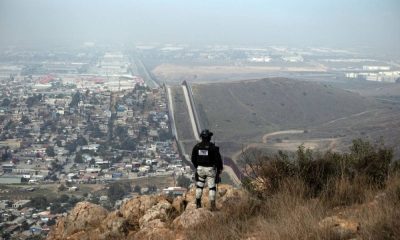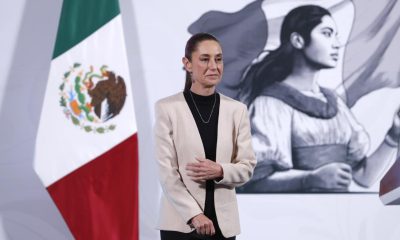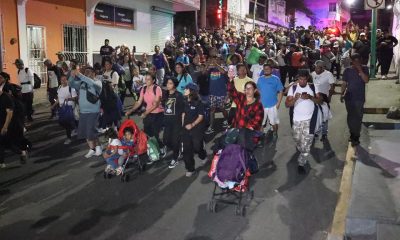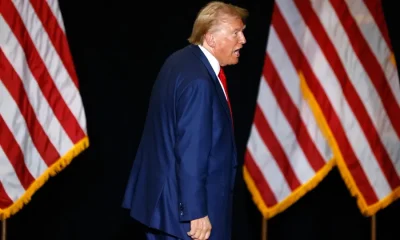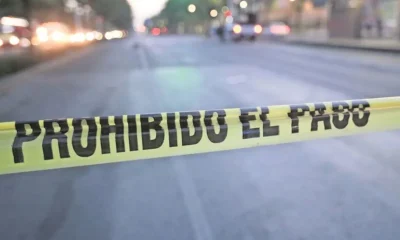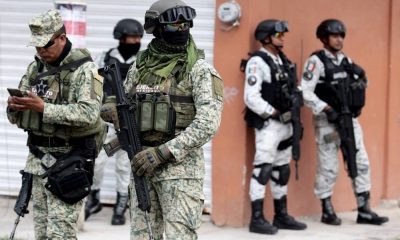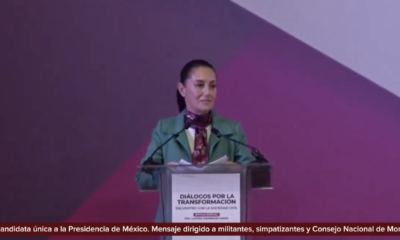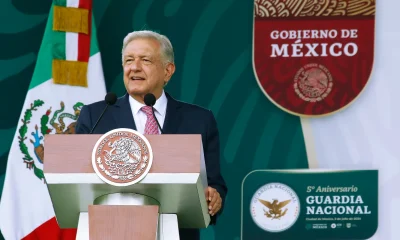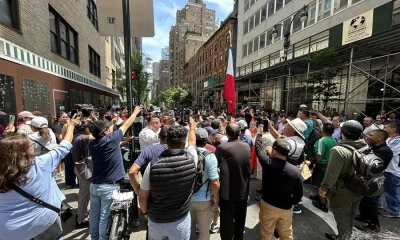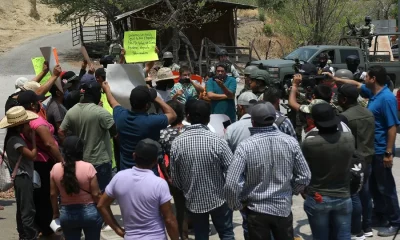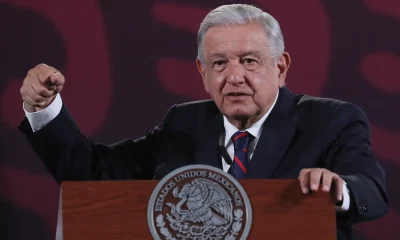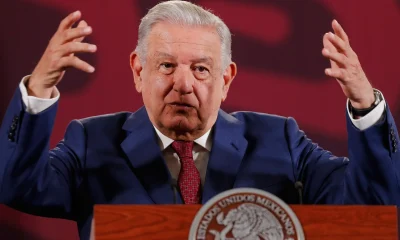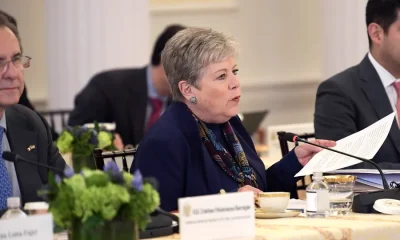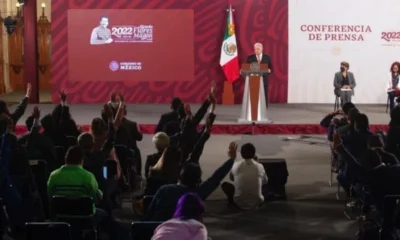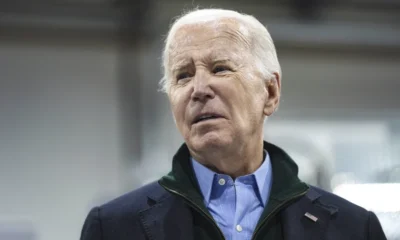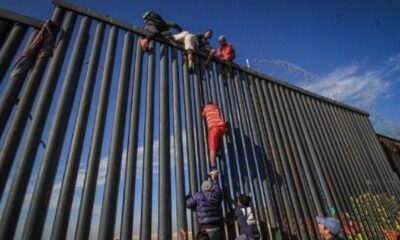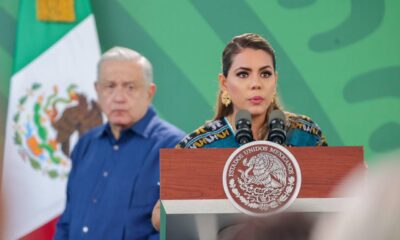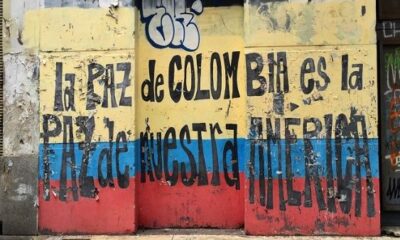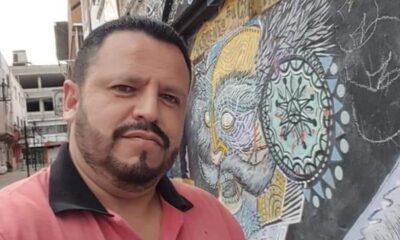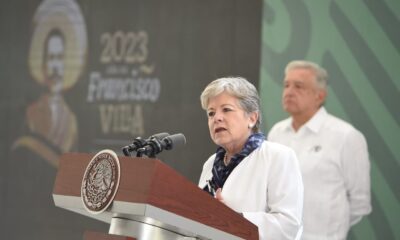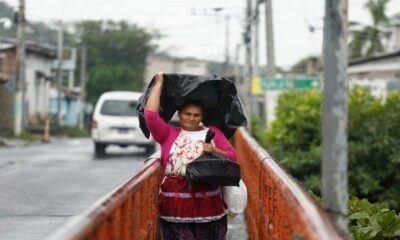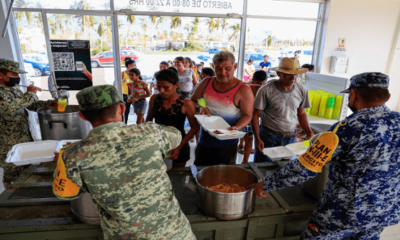International
Mexico weaves fashion policy to help Indigenous communities
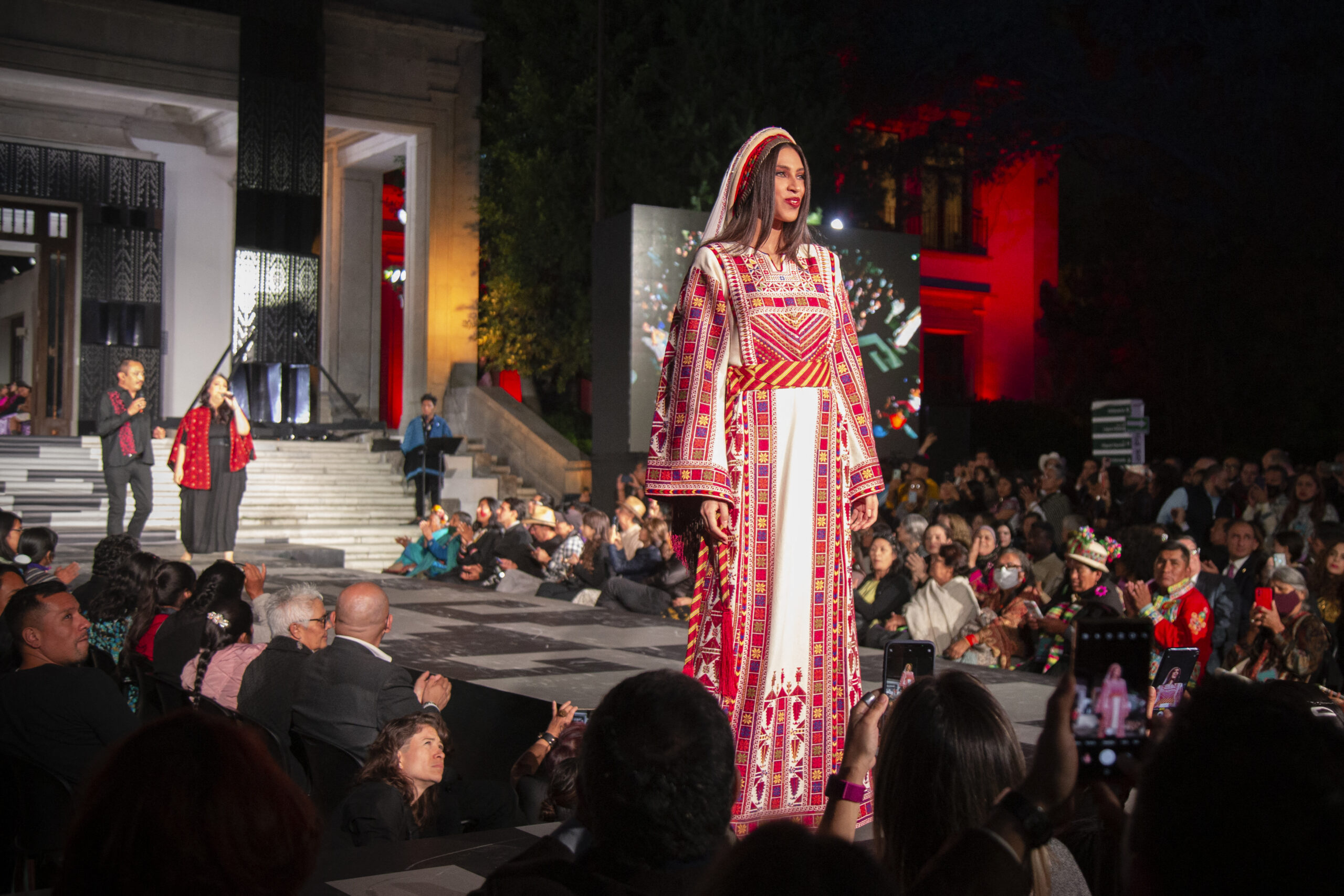
| Par AFP | Samir Tounsi |
Clothing designers inspired by traditional Mexican motifs, embroidery and colors are exhibiting their work at a fashion fair in Mexico City promoted by the government to support marginalized Indigenous communities.
Traditional blouses made by the Tzotzil people of Chiapas, embroidered patterns from Michoacan and shirts from Oaxaca were among the garments on show at the first of seven parades at the “Original” event.
“The creation of each product made in our community is a legacy of our ancestors,” said Carlos Alberto Delgado Martinez, one of around 500 exhibitors at the event, which runs until Sunday at the Los Pinos former presidential residence.
“It’s important that we artisans save our culture and defend it from plagiarism because each garment has a meaning. Each embroidery has an explanation,” he added.
As with the first edition in 2021, “Original” aims to fight what Mexico calls plagiarism of Indigenous textiles by foreign clothing brands, and to create a more equitable fashion industry.
“We’re not opposed to (the big fashion houses) using motifs of pre-Hispanic origin” as long as they recognize “the intellectual work and creativity” of Mexican artisans, President Andres Manuel Lopez Obrador said Friday.
“The government is pursuing a policy of rehabilitating the dignity of Indigenous peoples,” Lopez Obrador’s spokesman Jesus Ramirez Cuevas told AFP.
“Mexico would not be what it is without its Indigenous peoples,” he said, underlining the government’s social programs for impoverished such communities.
“It’s time for them to play a central role in the construction of the (country’s) identity. Today, we recognize their art,” he added.
Mexico has lodged several complaints against major clothing brands including Zara, Mango and SHEIN for alleged cultural appropriation.
Last month it won an apology from US fashion house Ralph Lauren after Lopez Obrador’s wife Beatriz Gutierrez accused it of plagiarizing Indigenous designs.
French designer Isabel Marant also apologized in 2020 for the use of the traditional patterns from an Indigenous community.
Mexico’s culture ministry has called for “ethical collaboration” between clothing brands and artisans.
“No to plagiarism. No to cultural appropriation. Yes to original creations and the communities behind them,” Culture Minister Alejandra Frausto said.
The government is also trying to retrieve pre-Hispanic archaeological pieces from abroad and stop foreign auctions of such items that Lopez Obrador has branded “immoral.”
“You want to buy Mexican art? Buy this one, which is alive,” Frausto said, pointing to models dressed in blouses, shirts and belts made by Indigenous artisans.
International
Paraguay summons Brazilian ambassador over Itaipú espionage scandal
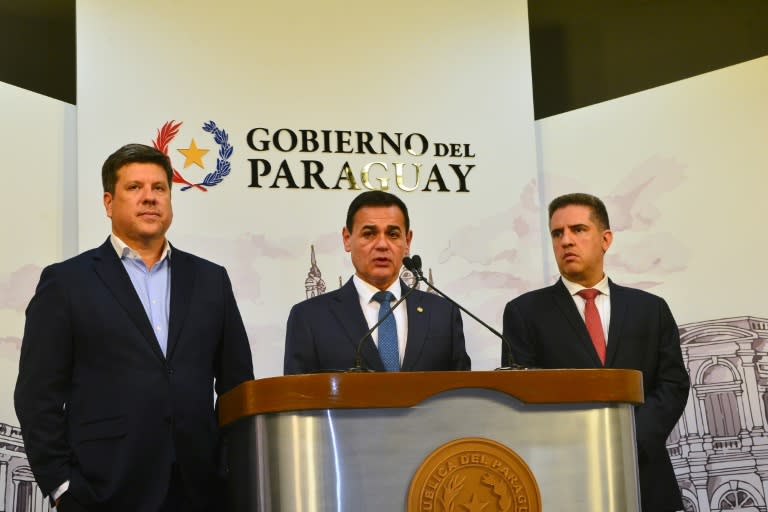
Paraguay summoned the Brazilian ambassador in Asunción on Tuesday to demand “explanations” and called its own representative in Brasília for consultations following Brazil’s acknowledgment of an espionage operation. The Brazilian government, led by President Luiz Inácio Lula da Silva, attributed the operation to the previous administration.
The surveillance effort aimed to uncover Paraguay’s position in now-suspended negotiations with Brazil regarding the pricing of electricity from the binational Itaipú hydroelectric plant, according to reports in the Brazilian press.
The Brazilian government “categorically denied any involvement in the intelligence operation,” stating in a Foreign Ministry communiqué on Monday that the espionage was carried out under former President Jair Bolsonaro’s administration (2019-2023).
“The operation was authorized by the previous government in June 2022 and was annulled by the interim director of the (state intelligence agency) ABIN on March 27, 2023, as soon as the current administration became aware of it,” Brazil’s government asserted.
Paraguay’s Foreign Minister Rubén Ramírez announced that Brazilian Ambassador José Antonio Marcondes de Carvalho was summoned “to provide detailed explanations” regarding the operation. Additionally, Paraguay recalled its diplomatic representative in Brasília “to report on aspects related to the intelligence activity conducted by Brazil regarding Paraguay’s government affairs.”
International
Elon Musk to step down as government advisor, per Trump insiders
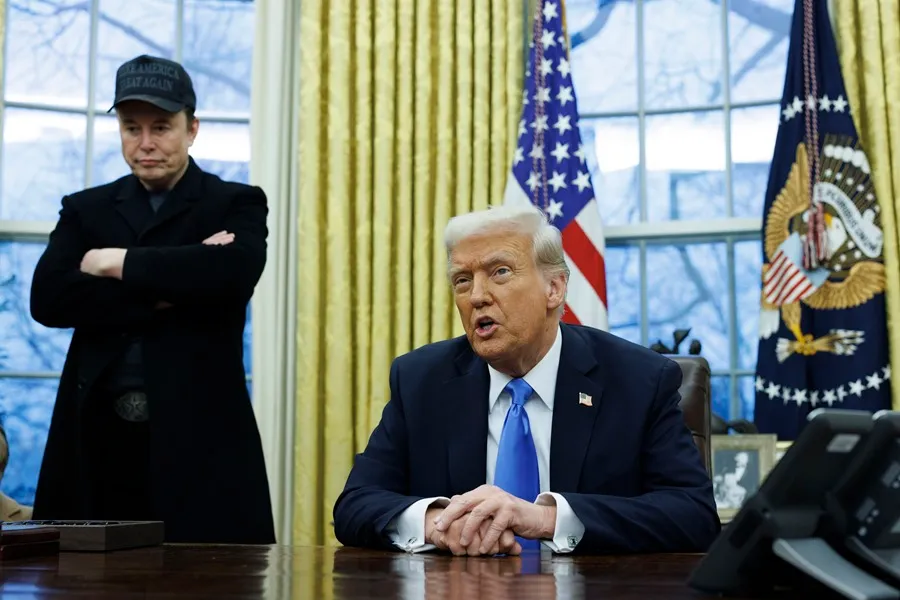
President Donald Trump has informed his inner circle that Elon Musk will be stepping down from his role as a government advisor, according to a report by Politico today.
Citing three individuals close to Trump, Politico states that the president is pleased with Musk’s leadership at the Department of Government Efficiency (DOGE), where he has implemented significant budget cuts. However, both have agreed that it is time for Musk to return to his businesses and support Trump from a different position outside the government.
A senior administration official told Politico that Musk will likely maintain an informal advisory role and continue to be an occasional visitor to the White House. Another source warned that anyone thinking Musk will completely disappear from Trump’s circle is “deluding themselves.”
According to the sources, this transition is expected to coincide with the end of Musk’s tenure as a “special government employee,” a temporary status that exempts him from certain ethics and conflict-of-interest regulations. This 130-day period is set to expire in late May or early June.
International
Milei vows to make Argentina so strong that Falkland Islanders “choose” to join

Argentine President Javier Milei reaffirmed his country’s claim over the Falkland Islands (known as the Islas Malvinas in Argentina) and praised the role of the nation’s armed forces during a ceremony marking the “Veterans and Fallen Soldiers of the Malvinas War Day,” commemorating 43 years since the 1982 conflict with the United Kingdom.
Argentina continues to assert sovereignty over the islands, arguing that Britain unlawfully seized them in 1833.
“If sovereignty over the Malvinas is the issue, we have always made it clear that the most important vote is the one cast with one’s feet. We hope that one day, the Malvinas residents will choose to vote with their feet and join us,” Milei stated.
“That is why we aim to become a global power—so much so that they would prefer to be Argentine, making deterrence or persuasion unnecessary. This is why we have embarked on a path of liberation, working to make Argentina the freest country in the world and once again the nation with the highest GDP per capita on the planet,” he added.
-

 Central America3 days ago
Central America3 days agoU.S. Homeland Security Secretary urges Mexico to strengthen Guatemala border
-

 Central America3 days ago
Central America3 days agoPanama grants Martinelli 72-hour extension to travel to Nicaragua
-

 International2 days ago
International2 days agoParaguay summons Brazilian ambassador over Itaipú espionage scandal
-

 Central America4 days ago
Central America4 days agoPanama police clarifies that Interpol alert for Martinelli is still pending
-

 International3 days ago
International3 days agoTrump urges Putin to reach peace deal
-

 International4 days ago
International4 days agoDeportation flight lands in Venezuela; government denies criminal gang links
-

 Sports2 days ago
Sports2 days agoFilipe Luis debuts as coach in Copa Libertadores with Flamengo
-

 Central America2 days ago
Central America2 days agoGuatemalan police officer killed in mob riots over baby kidnapping
-

 International2 days ago
International2 days agoElon Musk to step down as government advisor, per Trump insiders
-

 Sports2 days ago
Sports2 days agoVenezuela investigates 18 baseball players seeking asylum in Spain
-

 International2 days ago
International2 days agoMilei vows to make Argentina so strong that Falkland Islanders “choose” to join
-

 International2 days ago
International2 days agoICE agent’s arrest of suspect sparks controversy in Boston
-

 International2 days ago
International2 days agoÓscar Arias: Trump’s trade policies are a step backward














